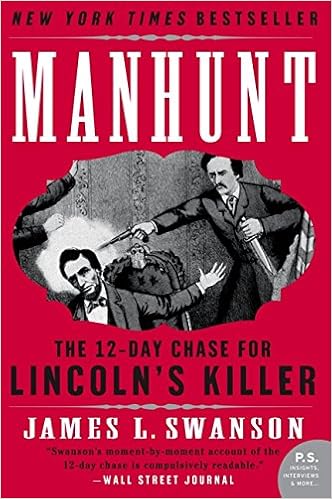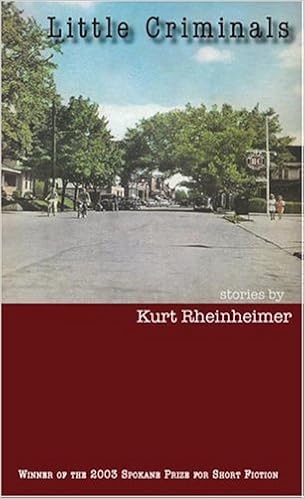Wednesday, May 28, 2008
On "You Know" by R. A. Rycraft (1640 words) ***
On "The Little Friend" by Donna Tartt ***
Monday, May 26, 2008
On "Tall Tales from the Mekong Delta" by Kate Braverman (6570 words) *****
She taught--in class--with an intensity matched by few others. We'd have to bring in three-page exercises for review, and generally after she was done talking about them in class, we might have a sentence or two left. I wasn't used to that. But her mantra was that if we would learn what not to do, what not to write, we'd be 100 percent better as writers. Basically, it came down to writing what was not expected. I took this as lyricism given her own work and would for awhile adopt a similar voice. It would take many years to learn what she really meant and how to implement it without necessarily using some overly inflated language. And I would have those years, as I would take her class two more times.
As I took her class, I began also to appreciate her own lyrical voice. However, my real appreciation for that voice began with her story collection Squandering the Blue, in which this story is featured. The title story and this story especially managed to situate the lyricism within the simpler language I preferred and into a more quickly graspable conflict and plot. While the former story is one that resonates as very sad, personal, and realistic, the latter story, "Tall Tales," is essentially a tall tale, a story that manages to merge realism and fantasy to create something truly harrowing--a drug addiction, a man addiction, a fall into horror. Read the story here.
Thursday, May 22, 2008
On "Mexico" by Andrew Roe (2518 words) ***
Monday, May 19, 2008
On "L.A. Doll" by Gregory Hahn (3070 words) ****
Sunday, May 18, 2008
On "Executing Dexter" by Brian Leung (4628 words) *****
A few years after that, I was at the Yalobusha Review as an editor, and I was desperate for some decent material. The previous year's editor suggested I solicit work, rather than just wait around for stuff to come to me, and so I wrote to one of my former instructors about people whose work she might send our way. She suggested Brian and passed along an e-mail address. Brian submitted--a good piece about this photographer named René. Unfortunately, in the meantime, I'd ended up with four other good stories. So now I had five good stories, and there was room for six. The problem was that one of those five good stories was over sixty pages long--it was a novella essentially, the length of four stories. So my choice was to accept the novella and two other stories, or take the four shorter stories, reject the novella, and publish two other stories I was only halfway satisfied with. I chose the first option, which meant I had to write Brian and let him know we couldn't publish his piece, though I'd really wanted to. He took it graciously.
The next time I came across Brian's work was in a magazine, a piece called "Six Ways to Jump Off a Bridge," which was published in Story's very last issue or in the second-to-last issue. I'd been on-and-off long-time subscriber, so finding Brian suddenly in its pages was rather exciting. That story would later end up in Brian's book of short stories, World Famous Love Acts. I'd come across that collection, the winner of the Mary McCarthy Prize, by Sarabande books, because of Amazon.com about five years later.
You see, a short while before that I'd come across Brock Clarke's fiction in an issue of the Georgia Review, and an interest in his work had sparked me to buy his first book of stories, which had also won the Mary McCarthy Prize--Amazon being the only place that stocked it (none of our local chain booksellers being the type to stock small press titles). Amazon's recommendations, as unimaginatively perceptive as they often are, then proceeded to believe I'd be interested in anything that had won the Mary McCarthy Prize and recommended Brian's book when it came out a year later. Again, surprise. This time, I looked Brian up on the Internet, found out he was now teaching at Cal State Northridge and wrote him a short note to congratulate him. We caught up on what had happened to us over the past decade, and then I bought his book, read it, and was--typically--impressed. Three stories in particular stood out. My favorite was a piece called "Drawings by Andrew Warhol," which Brian told me after I'd read the book, was to be made into a movie. Perhaps, you can catch it on DVD somewhere (I don't think it was going to be feature length, so there's little chance you'll see it in the cinema, unfortunately). But one of my other favorites was "Executing Dexter."
Perhaps the best thing about the Barcelona Review is the way it makes available online work of some published authors that might slip under the radar otherwise, reprinting stories from collections with the author's permission. And one of those stories that it has republished is "Executing Dexter." The story is about two boys who run pretend baby executions for fun, but their seeming cruelty bespeaks other familial problems they both have at home. Both the ending and the beginning of this story are likely to hit you in the gut. Read it here.
Friday, May 16, 2008
On "Retroactive Special" by Michael Cocchiarale (3511 words) ***
On "Seven Reasons Jerome Likes Sizzler" by Tom Lavagnino (1538 words) ****
Wednesday, May 14, 2008
On "What to Do" by Sean Ennis (3111 words) ****
Build a story around a psychic girlfriend and don't be afraid of making statements that will offend someone (Ennis is an equal-opportunity offender), and you have the makings of something compelling. The psychic sees everything coming, but you'll read on anyway. Read it here.
Tuesday, May 13, 2008
On "Manhunt: The Twelve-Day Chase for Lincoln's Killer" by James L. Swanson *****
On "The Au Pair" by Sean Ennis (2380 words) ****
On "32 Stories" by Adrian Tomine ***
Sunday, May 11, 2008
What the Stars Mean and Why No Story Gets One or Two
* = I hate itI see no reason to write about stories I don't like--it wastes my time, encourages people to look at stories there's a good chance they'll dislike as well, and unnecessarily might insult some authors. But why, in that case, even include the three-star stories?
** = I didn't like it
*** = It's okay
**** = I liked it
***** = I loved it
Most of the three-star stories here are really what I'd think of as three and a half stars--I didn't feel like I could quite give them four, lest everything on here have four stars. Often, they're the represent the best of a week or two worth of reading--in other words, they're not only better than a lot of one- and two-star stories but also than a lot of other three-star stories. That is, they're really better than okay. They're good.
I'd prefer to think of the three, four, and five star meanings this way--as Yahoo! would rank its music--rather than as Amazon would rank its books:
*** = I liked the story. I enjoyed reading it and encourage others to check it out.Not too many stories get five stars. So if I stuck with just five and four stars, there'd be no real hierarchy at all.**** = I loved this story. I will likely read it again sometime.
***** = I can't get enough of this story. This is a classic; I am glad I was alive to have read this.
On "Saturday in the Quality Save in Chorlton" by Chris Killen (568 words) ****
Friday, May 9, 2008
On "My Brother Picks Cans" by Mark R. Dursin (3512 words) ***
Thursday, May 8, 2008
On "Juan Tomas and the Pale Yellow Letters" by Shellie Zacharia (2359 words) ***
Monday, May 5, 2008
On "Little Criminals" by Kurt Rheinheimer ***
On "Permanent," by Mary Phillips-Sandy (781 words) ***
Here's a horrifying story, one probably more horrifying than many others that try too hard. It's a simple nightmare--one's teeth begin to fall out. What do you do? Unfortunately, as I've noted in reviews about one sad thing about the Internet preference for shorter rather than longer pieces, the story, doomed to stick to its short word count, seems to simply drop off, so we're left wanting more, left feeling like the last two-thirds of the story isn't here. But it's a great beginning, and the fact that I'd be willing to read something three times this long shows it executes what is here well. Read the story here.
Sunday, May 4, 2008
On "In Flight" by Michelle Richmond (494 words) *****
Friday, May 2, 2008
On "The Undiscovered Country, Apparently" by Andrew S. Taylor (1284 words) ****
One of the amazing things about Pindeldyboz is that it comes out every two weeks and always manages to have at least a couple of good stories in it. Some other journals come out four times a year and don't manage to have a single decent story in them. I don't know how Pindledyboz does it--perhaps, it has gained a reputation of publishing fine material. It also helps--and hinders--that the publication limits writers to twenty-five hundred words. Helps insofar as that many words, I find, really is about the limit of my online reading tolerance; after that, I'm likely to click away or resort to printing the thing out. Hinders in that sometimes it seems like writers are constrained by what really is a fairly difficult set of parameters. I mean, how many of the great stories really occur in such a space? Pick up nearly any Flannery O'Connor piece, any Raymond Carver piece (outside of What We Talk about When We Talk about Love), any Chekhov piece, and you're dealing with twice that number of words generally. Andrew S. Taylor's story, I think, may be a case in point. I love this piece. He takes an ordinary situation--a drink falling at a party--and turns it into a strange almost science fiction experiment. Tragedy is averted--or perhaps created. But then, given the need to wrap the story up, the piece, to my mind, fizzles out right at the end (or perhaps, arguably, it goes on a couple of paragraphs too long). But the first nine-tenths of this story is absolutely fantastic. Read the story here.









